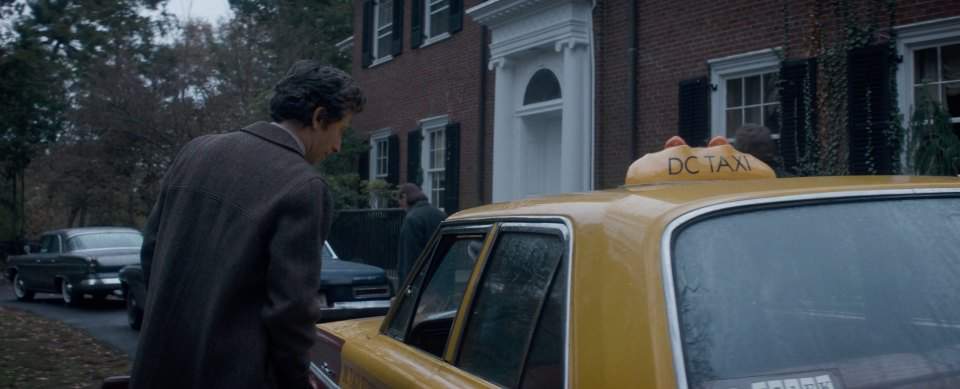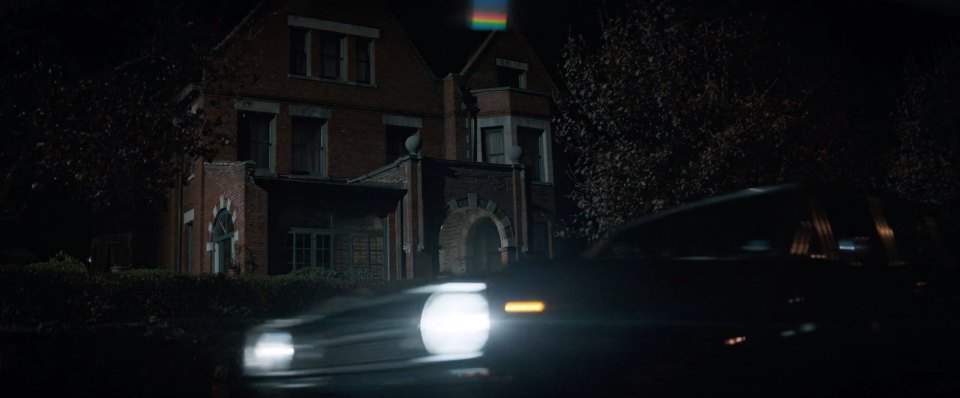The Trial of the Chicago 7 2020

As tensions escalate at the 1968 Democratic National Convention, a peaceful protest devolves into chaos, sparking a brutal showdown between protesters and law enforcement. The ensuing trial of seven prominent activists – including counterculture icons Abbie Hoffman and Jerry Rubin – becomes a landmark test of free speech and civil disobedience against the might of the state.
Does The Trial of the Chicago 7 have end credit scenes?
No!
The Trial of the Chicago 7 does not have end credit scenes.
Actors
Meet the cast of The Trial of the Chicago 7 and learn about the talented actors who brought the characters to life. Explore their roles and career highlights.

Sacha Baron Cohen

William Hurt

Joseph Gordon-Levitt

Yahya Abdul-Mateen II

Michael Keaton

Thomas Middleditch

Mark Rylance

Kelvin Harrison Jr.

Alex Sharp

Eddie Redmayne

Alice Kremelberg

Ben Shenkman

Caitlin Fitzgerald

Frank Langella

J.C. MacKenzie

Jeremy Strong

John Carroll Lynch

John Doman

Juliette Allen-Angelo
Links
Explore where to watch The Trial of the Chicago 7 online. Find reviews, ratings, and detailed movie information on other platforms like Metacritic, Rotten Tomatoes, IMDb or JustWatch
Ratings
Discover how The Trial of the Chicago 7 is rated on popular platforms like IMDb, Metacritic, and TMDb. Explore audience and critic scores to see how this movie ranks among the best.

76
Metascore
7.5
User Score


%
TOMATOMETER

0%
User Score

7.7 /10
IMDb Rating

77
%
User Score

3.8
From 1.6K fan ratings

3.00/5
From 2 fan ratings
Awards
Discover the awards and nominations received by The Trial of the Chicago 7. Explore the history of The Trial of the Chicago 7 and its cast and crew.

Cinematography
Film Editing
Best Picture
Writing (Original Screenplay)
Best Film
Best Original Screenplay
Best Editing
Best Picture


Best Acting Ensemble

Best Editing












Outstanding Performance by a Stunt Ensemble in a Motion Picture

Best Motion Picture – Drama

Best Director
Best Screenplay
Best Original Song
Plot Summary
Get the full story of The Trial of the Chicago 7 with a detailed plot summary. Dive into its themes, characters, and the twists that make it a must-watch.
In August 1968, Abbie Hoffman, Jerry Rubin, Tom Hayden, Rennie Davis, David Dellinger, Lee Weiner, John Froines, and Bobby Seale make preparations to protest at the Democratic National Convention in Chicago. Five months later, they are arrested and charged with “crossing state lines” to incite a riot. John N. Mitchell, the Attorney General, appoints Tom Foran and Richard Schultz as the prosecutors, while all the defendants except Seale are represented by William Kunstler and Leonard Weinglass.
Judge Julius Hoffman shows significant prejudice for the prosecution, especially insisting that he and Abbie Hoffman are not related. Seale’s attorney, Charles Garry, cannot attend due to illness, leading Judge Hoffman to insist that Kunstler represent him. This insistence is rejected by both Kunstler and Seale. Seale receives support from Fred Hampton which Judge Hoffman assumes is legal help. Abbie Hoffman openly antagonizes the court. Judge Hoffman removes two jurors who he suspects sympathize with the defendants due to alleged threats from the Black Panther Party and charges the defendants and their attorneys with multiple counts of contempt of court. Tension builds between the defendants.
Numerous undercover police officers and FBI agents testify. At the time of the convention, Hayden noticed two police officers tailing Davis and attempted to let the air out of their tire, but was caught and later arrested. Abbie and others led a protest to the police station where Hayden was detained but turned around upon seeing the police blockade outside. When trying to return to the park, police had taken control of the hill with orders to disperse the crowd leading to a riot between police and protesters.
Days later, the defendants learn that Fred Hampton was killed during a police raid. In retaliation for Seale continuing to speak up for his constitutional rights, Judge Hoffman has him taken to another room, beaten, and returned gagged and chained. This causes the defense and the prosecution to object, and Judge Hoffman declares Seale’s case a mistrial.
The defense puts Ramsey Clark, Attorney General during the riots, on the stand. Judge Hoffman refuses to let him testify in front of the jury as he had declined to initiate prosecutions after the riots because of evidence that the Chicago Police Department instigated them. Dellinger punches a bailiff, resulting in his arrest.
Kunstler presents a tape implicating Hayden to the defendants and preps Hayden for cross-examination. On the night of the riot, Davis tried to pacify officers trying to arrest someone climbing a flagpole. After the police clubbed Davis’s head, an enraged Hayden exclaimed, “If blood is going to flow, then let it flow all over the city!”. The defendants were cornered by police and beaten. Abbie deduces that Hayden had misspoken, claiming the statement would have started with, “If our blood is going to flow… .” Realizing that mistake would be exploitable on the stand, Hayden asks Abbie to testify. Abbie agrees.
At the end of the trial, Hayden is given a chance by Judge Hoffman, who feels Hayden is genuinely remorseful, to make a case for a lenient sentence. However, over Judge Hoffman’s objections, Hayden uses his closing remarks to name the 4,752 soldiers who were killed in the Vietnam War since the trial began. This act prompts many in the court to stand and cheer, with even Schultz choosing to stand out of respect.
Movie Cars
Explore the iconic cars featured in The Trial of the Chicago 7. Discover the vehicles that played a role in the movie, their details, and their significance.
Keywords
Discover the keywords that describe the themes and topics of the movie. Explore the keywords that define the essence of the film.
Featured on this page

What's After the Movie?
Not sure whether to stay after the credits? Find out!
Check out our other apps:
Actors
Companies
Latest Movies
© 2025 What's After the Movie. All rights reserved.
























